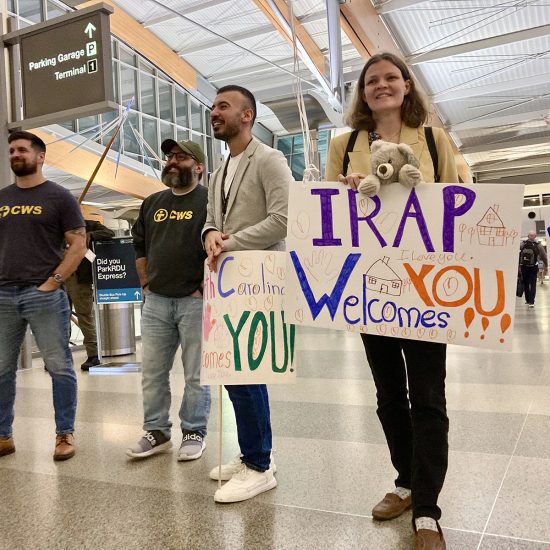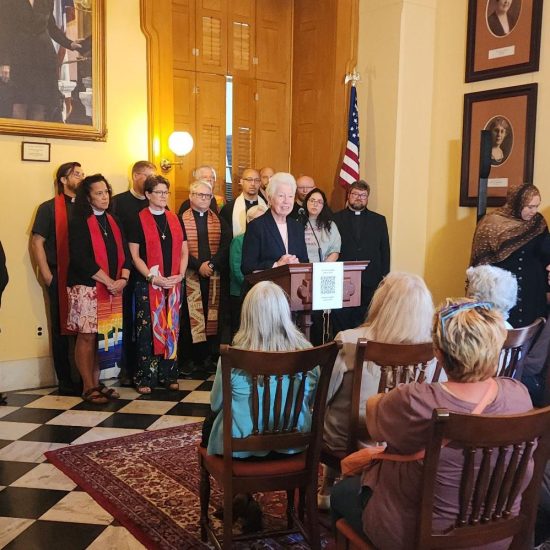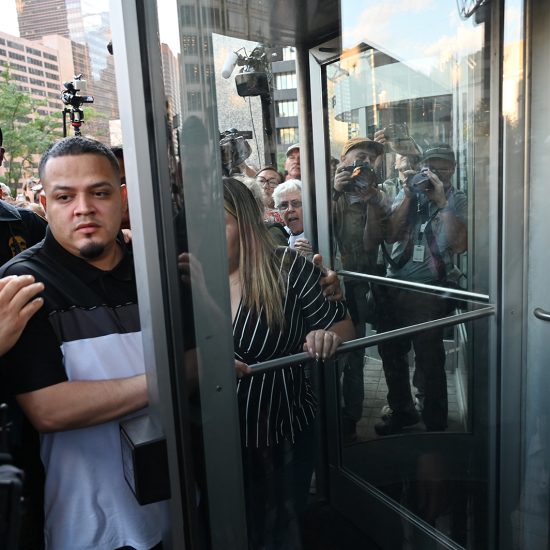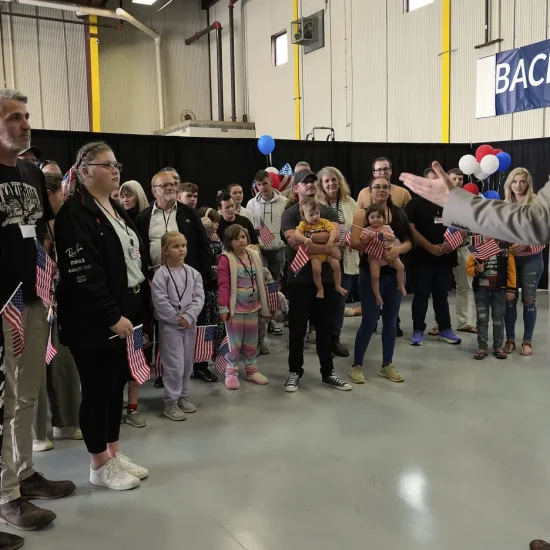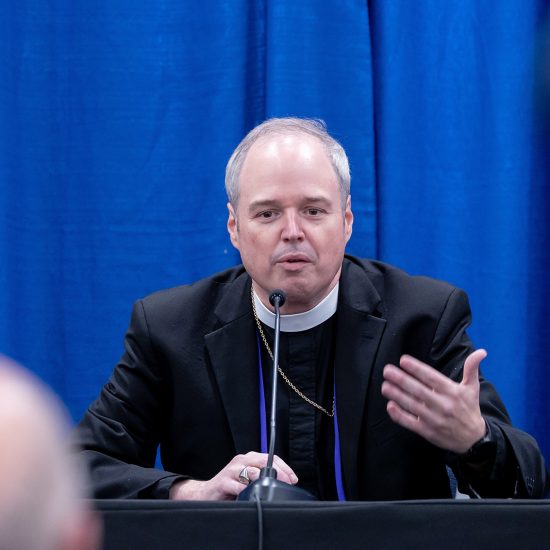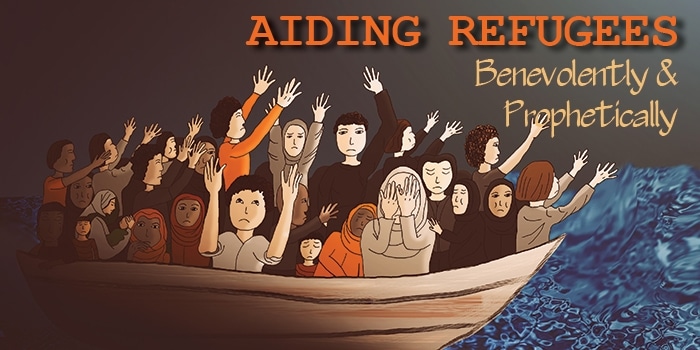
The Gateway Arch represented the westward expansion of the United States. For thousands of people from around the world, the Arch also welcomes them to their new home in the way the Statue of Liberty did for earlier generations of refugees.
A major resettlement city for refugees, St. Louis has swollen with more than 20,000 refugees over the past four decades. Among the top nationalities resettled in St. Louis are those from Bosnia, Vietnam, Somalia, Bhutan, Afghanistan and Laos.
 Zach TreadwayTower Grove Baptist Church sits just a few miles from the Arch. With a rich heritage and active community involvement, the church also works to welcome new neighbors to their community. Zachary Treadway, the church’s missions and youth director, noted the congregation works to help connect recently resettled refugees “to resources, help with medical problems, transportation, employment, education, etc.”
Zach TreadwayTower Grove Baptist Church sits just a few miles from the Arch. With a rich heritage and active community involvement, the church also works to welcome new neighbors to their community. Zachary Treadway, the church’s missions and youth director, noted the congregation works to help connect recently resettled refugees “to resources, help with medical problems, transportation, employment, education, etc.”
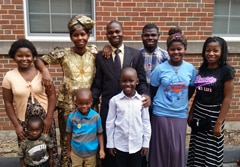 Freddy Lumande (center) and his family were resettled in St. Louis, Mo., from Burundi, where he worked as a Baptist pastor and church planter. His church, located in the capital, was working to strengthen churches in more rural communities. He and his oldest son have found good jobs, and the other children are happy attending school. Still, he struggles with the knowledge that his family, friends and church members still in Bujumbura, where violence has plagued the capital for several months. He balances a modest budget to support his growing family here while sending money home to Burundi to support the rest of his family and the efforts of the church there. (Tower Grove Baptist Church, St. Louis)
Freddy Lumande (center) and his family were resettled in St. Louis, Mo., from Burundi, where he worked as a Baptist pastor and church planter. His church, located in the capital, was working to strengthen churches in more rural communities. He and his oldest son have found good jobs, and the other children are happy attending school. Still, he struggles with the knowledge that his family, friends and church members still in Bujumbura, where violence has plagued the capital for several months. He balances a modest budget to support his growing family here while sending money home to Burundi to support the rest of his family and the efforts of the church there. (Tower Grove Baptist Church, St. Louis)
“We’re also able to offer their children scholarships to Tower Grove Christian Academy, and through our partnership with the Immigrant and Refugee Women’s Program and the congregation’s support we’re able to match many of the adults with English tutors from our English congregation,” he added.
“Most importantly, we find ways to come together for worship and for fun, to really build that sense of community, to welcome their people to our country and hopefully show them the best parts of what it means to live in this country.”
Treadway noted Tower Grove also assists different refugee communities to provide “a safe place for their families to come worship together.”
“By offering our facilities, we’ve been able to build relationships and help strengthen their communities,” he said. “Building a church is already difficult, but building a church in a new country with limited resources and varied backgrounds is an even bigger challenge. We do what we can to help with those difficulties by providing support to the pastors and leaders of their communities.”
The Bible and refugees
 Duane BinkleyDuane Binkley, who served as a missionary in Burma, returned to the United States in 2006. With a large number of Burmese refugees entering the country, he started working churches to help engage them. He holds a joint appointment with both International Ministries of the American Baptist Churches, USA, and the Cooperative Baptist Fellowship and works closely with Central Baptist Theological Seminary in Shawnee, Kansas.
Duane BinkleyDuane Binkley, who served as a missionary in Burma, returned to the United States in 2006. With a large number of Burmese refugees entering the country, he started working churches to help engage them. He holds a joint appointment with both International Ministries of the American Baptist Churches, USA, and the Cooperative Baptist Fellowship and works closely with Central Baptist Theological Seminary in Shawnee, Kansas.
“As Christians and Baptists, we should care about refugees simply because the Bible tells us so,” Binkley said. “As Baptists, we should particularly care about refugees coming from Burma since we share so much history going back to Adoniram Judson.”
He offered insights on how churches can pay attention and start ministering to refugees and immigrants in their communities.
“Churches need to be aware of just who is living around them,” he explained. “Our work with the people of Burma/Myanmar has opened our eyes to just how international the U.S. has become. It is not just happening in big cities either. Even small towns often have international communities living in or near them.”
“The goal should be fully accepting people as they are, just as Jesus accepts us as we are,” he said. “Too often, people in the churches feel we need to help those different than us ‘assimilate,’ which too often means we won’t really accept them until they become just like us.”
“First generation refugees and many immigrants have had to flee their original homes because they have not been allowed to be the people God created them to be,” he added. “Coming to the U.S., their first priority then is to finally be free to be that person God created which will certainly include their culture. We can help them adapt to their new surroundings, but accepting them for who they are and truly offering them love will be the best we can offer.”
 Micah FriesMicah Fries, a former Missouri Baptist pastor who now serves as a vice president for LifeWay Research in Nashville, also urges churches to get involved in ministering to refugees. He noted several organizations that churches can work alongside with, such as Baptist Global Relief, World Vision and World Relief. Fries suggested three key ways churches could make a difference.
Micah FriesMicah Fries, a former Missouri Baptist pastor who now serves as a vice president for LifeWay Research in Nashville, also urges churches to get involved in ministering to refugees. He noted several organizations that churches can work alongside with, such as Baptist Global Relief, World Vision and World Relief. Fries suggested three key ways churches could make a difference.
“Pray for refugees,” he said. “Set aside time each week for prayer on behalf of those who are refugees.”
“Financial support is always needed,” he added. “The organizations providing relief can use your financial assistance.”
“Offer to ‘adopt’ refugees who are being resettled in your area,” he concluded. “Adopting a family often requires as little as volunteering two hours a week to be a friend to a refugee or family that may find this new life in the U.S. bewildering. You can help them navigate your area, understand a job interview process, practice English or share a meal.”
Fries emphasized such ministry should be driven by biblical calls to care for refugees.
“Baptists should care for refugees because scripture and the example of Jesus compels us to,” he explained. “Being a follower of Christ means those who are hurting, vulnerable and in need of protection should be at the top of the list of those we care for.
“Jesus’ life teaches us that he cares for those others have forgotten,” he added. “The gospel of Luke, in particular, highlights Jesus’ love for excluded and marginalized people. We should care because Jesus cares.”
See also:

